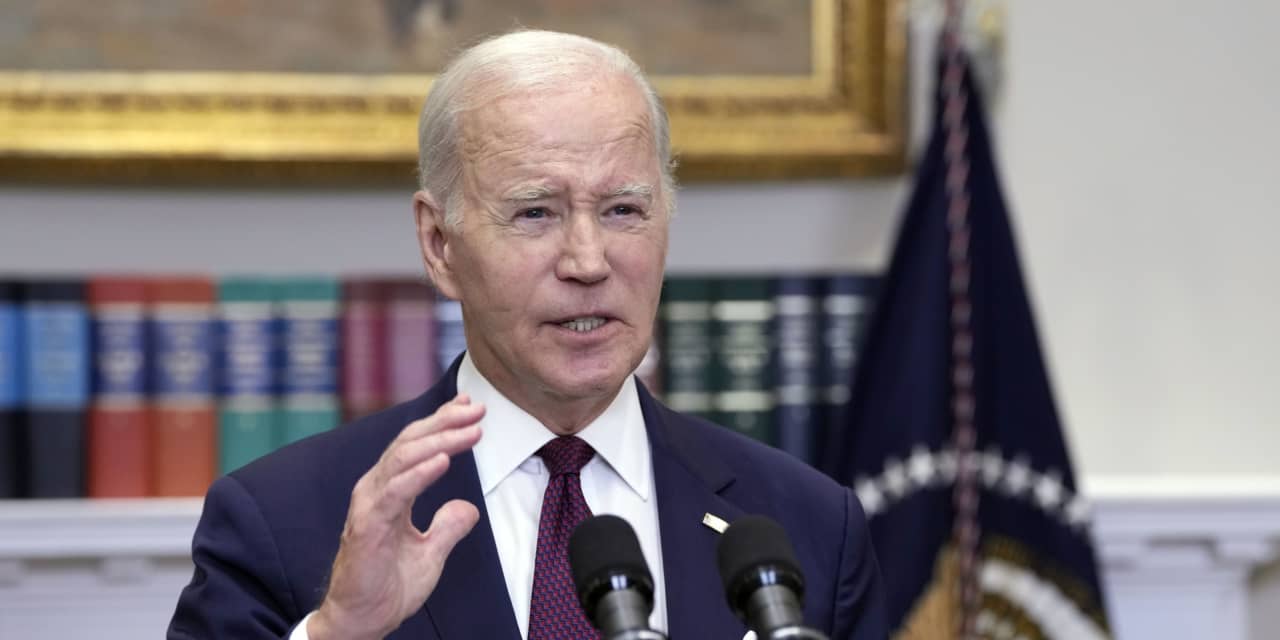The Biden administration on Monday issued the first U.S. executive order on artificial-intelligence technology. The sweeping order will bring AI systems from the likes of
Microsoft,
Google, and
Amazon
under the scrutiny of a range of government departments and steer the sector away from a path of self-regulation.
The order requires developers of the most powerful AI systems to share safety-test results and other critical information with the U.S. government. The standards for testing will be developed by the National Institute of Standards and Technology,
The government will also develop guidance for labeling AI-generated content and establish an AI-enabled cybersecurity program.
The order represents a step change from previous voluntary pledges made by companies including
Amazon.com
(ticker: AMZN),
Microsoft
(MSFT), Google-parent
Alphabet
(GOOGL), and
Meta Platforms
(META) among others.
“These are the most significant actions ever taken by any government to advance the field of AI safety,” the White House said in a statement.
The U.S. and other national governments are racing to keep up with developments in AI, which has become a huge focus of corporate investment since the viral success of ChatGPT — the chatbot developed by Microsoft-backed OpenAI.
Big technology companies are now competing to roll out more powerful AI models. Google has agreed to invest up to $2 billion in AI start-up Anthropic, The Wall Street Journal reported last Friday. That follows on from a separate commitment Amazon made last month to invest $4 billion in the company, which was founded by former OpenAI engineers in 2021 with the goal of developing rival generative AI models.
The new requirements on safety testing are only likely to apply to big tech companies’ next-generation AI systems, and not current versions, the Journal reported, citing government aides.
It remains to be seen to what extent the order’s requirements can be enforced without further authority from Congress. Alongside the order, the Biden administration called on Congress to pass bipartisan data-privacy legislation related to AI.
“Without fresh resources provided by Congress, it’s not clear that the federal government has the resources to assess the vastly complicated training process or the adequacy of red-teaming [security testing] and other necessary testing,” said Paul Barrett, deputy director of the NYU Stern Center for Business and Human Rights.
The order is also part of an international race to establish AI regulation, with the European Union pushing forward its own draft rules around the sector and China having already adopted strict controls on the technology.
Write to Adam Clark at adam.clark@barrons.com
Read the full article here











Leave a Reply